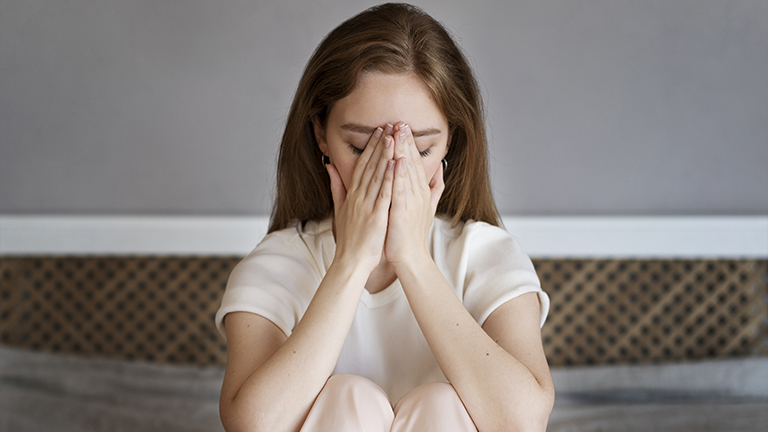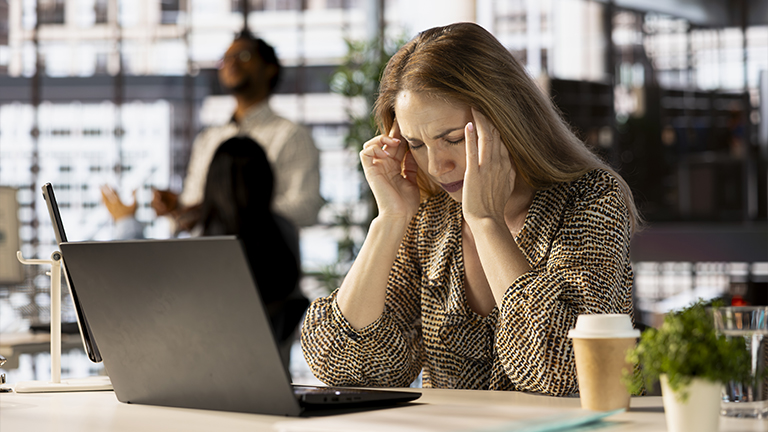Anxiety is a common mental health issue affecting millions of people worldwide. Whether it’s occasional stress or chronic anxiety disorders, learning how to recover from anxiety is essential for improving mental well-being. This guide explores immediate anxiety relief techniques and long-term anxiety recovery strategies, including natural ways to reduce anxiety, therapy options, and lifestyle changes that help manage symptoms effectively.
Understanding Anxiety: Causes and Symptoms
Before learning how to recover from anxiety, it’s important to recognize its causes and symptoms.
Common Causes of Anxiety:
- Genetic factors (family history of anxiety)
- Chronic stress (work, relationships, financial pressure)
- Trauma (PTSD, past traumatic experiences)
- Medical conditions (thyroid disorders, heart disease)
- Substance use (caffeine, alcohol, drugs)
Symptoms of Anxiety:
- Excessive worry or fear
- Rapid heartbeat & shortness of breath
- Muscle tension & headaches
- Insomnia or sleep disturbances
- Digestive issues (nausea, stomach pain)
Recognizing these signs early helps in applying the right coping strategies for anxiety before it worsens.
Immediate Anxiety Relief Techniques
When anxiety strikes, quick interventions can help calm anxiety fast.
1. Deep Breathing Exercises
Deep breathing activates the parasympathetic nervous system, reducing stress.
Technique:
- Inhale deeply for 4 seconds
- Hold for 4 seconds
- Exhale slowly for 6 seconds
- Repeat for 2-5 minutes
2. Grounding Techniques (5-4-3-2-1 Method)
This method helps refocus the mind away from anxiety.
Steps:
- 5 things you can see
- 4 things you can touch
- 3 things you can hear
- 2 things you can smell
- 1 thing you can taste
These anxiety relief techniques provide instant calming effects during panic attacks.
Long-Term Strategies to Recover from Anxiety
While quick fixes help, long-term anxiety recovery requires consistent effort.
1. Cognitive Behavioral Therapy (CBT) for Anxiety
CBT is one of the best therapies for anxiety, helping reframe negative thoughts.
How it works:
- Identifies anxiety triggers
- Challenges irrational fears
- Replaces negative thoughts with balanced ones
Studies show CBT is highly effective for generalized anxiety disorder (GAD), social anxiety, and panic disorder.
2. Mindfulness and Meditation for Anxiety Reduction
Mindfulness trains the brain to stay present, reducing overthinking.
Techniques:
- Guided meditation (apps like Headspace, Calm)
- Body scan meditation (focusing on physical sensations)
- Mindful walking (paying attention to each step)
Regular practice lowers cortisol levels, a key stress hormone.
3. The Role of Diet and Nutrition in Managing Anxiety
Certain foods worsen anxiety, while others help reduce anxiety naturally.
Best foods for anxiety:
- Omega-3 fatty acids (salmon, walnuts)
- Magnesium-rich foods (spinach, almonds)
- Probiotics (yogurt, kimchi) for gut-brain health
Avoid:
- Excessive caffeine
- Refined sugars
- Alcohol
4. Exercise and Physical Activity to Combat Anxiety
Exercise releases endorphins, natural mood boosters.
Best exercises for anxiety relief:
- Yoga (combines movement & breathwork)
- Cardio (running, cycling)
- Strength training (reduces muscle tension)
Even a 20-minute walk daily can significantly lower anxiety.
5. Sleep Hygiene: How Better Sleep Lowers Anxiety
Poor sleep worsens anxiety, creating a vicious cycle.
Tips for better sleep:
- Stick to a sleep schedule
- Avoid screens 1 hour before bed
- Keep the bedroom cool & dark
- Try relaxation techniques before sleep
When to Seek Professional Help for Anxiety
While anxiety self-help tips work for mild cases, severe anxiety may require professional intervention.
Signs you need help:
- Anxiety disrupts daily life
- Panic attacks are frequent
- Self-help methods don’t work
- Substance abuse develops
Treatment options:
- Therapy (CBT, exposure therapy)
- Medication (SSRIs, benzodiazepines – prescribed by a doctor)
- Support groups (shared experiences reduce isolation)
Building a Support System for Anxiety Recovery
A strong support network enhances stress and anxiety management.
Ways to build support:
- Talk to trusted friends/family
- Join anxiety support groups (online or in-person)
- Consider therapy for deeper emotional processing
Final Thoughts: A Holistic Approach to Anxiety Recovery
Recovering from anxiety is possible with the right mix of immediate relief techniques and long-term lifestyle changes. Whether through deep breathing exercises, CBT therapy, mindfulness, or diet adjustments, a personalized approach works best.
If anxiety feels overwhelming, seeking professional help is a crucial step toward lasting recovery. By combining self-help strategies with expert guidance, you can regain control and live a calmer, more balanced life.



